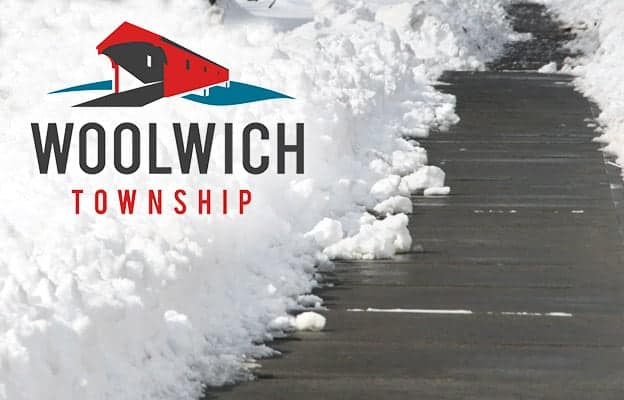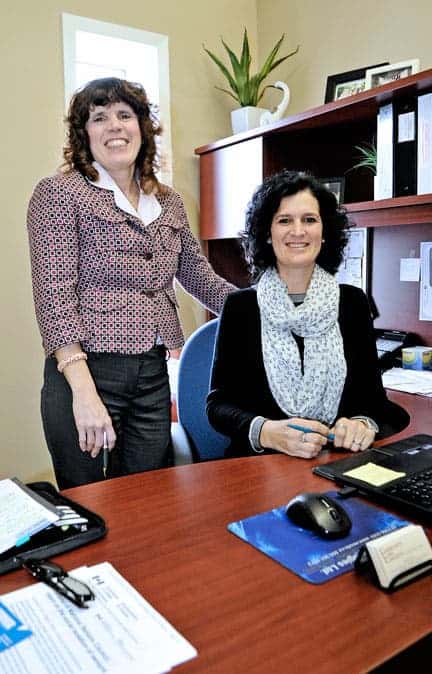Winter’s return this week had Woolwich crews out on the roads, tackling the snow and ice notably absent over Christmas. When and in what strength they’re deployed is determined by the weather, of course, but also by minimum standards set by the province.
The township’s own guidelines for clearing roads and sidewalks were determined by a 2011 review of winter maintenance service levels. Simply complying with the provincial minimum wouldn’t necessarily mean people would have an easy time getting where they need to go, says Dan Kennaley, Woolwich’s director of engineering and planning.
“Our standard is basically, as much as our existing resources allow, try to direct as many of those resources at the commuting times and try to within reason make sure the roads are as clear as they can be, given the amount of resources we have available to us.”
He said they try to concentrate on early morning and late afternoon to keep the roads in as good as shape as possible for work commuters. By and large, that means there are few complaints about the plowing of roads in Woolwich. It’s the sidewalks that used to be the issue.
“We used to get a lot of complaints about clearing of sidewalks in Elmira,” Kennaley said. “We tried to hire a better contractor and we seem to have achieved that. The complaints have fallen off drastically.”
And Woolwich, like all municipalities, has a legal duty to take care of its snow removal in a timely manner. That was made very apparent when two sisters in Oshawa were left wheelchair dependent after a car accident in 2004. In 2012 the Supreme Court of Canada ruled against the city of Oshawa, proving municipalities can be found at fault for poor maintenance of their roads.
Woolwich has been spared that kind of legal action. Richard Petherick, Woolwich’s director of finance, said as far as claims related to the roads, he’s not aware of anything against the township in recent years, except “the typical pothole stuff.”
“From a sidewalk perspective it’s the typical slip and falls [the township could be liable for],” Petherick said. “From a roads side, you could be liable if you didn’t meet the minimum maintenance standards with regard to clearing the roads: not clearing it at the time you should have.”
The minimum maintenance standard is determined by the province. Roads are divided into classes based on their average annual daily traffic. The standards apply to the depth of snow on the roads and the time threshold. For example, a Class 3 road must be plowed as soon as possible once eight centimetres have accumulated. Once it stops snowing snow must be removed to eight centimetres or less within 12 hours. It also must be treated for ice within eight hours after the township has become aware it’s icy.
To ensure the minimum standards are met, two individuals from the township do road patrol early in the morning, over the course of the day, and late in the afternoon when commuting starts. They make the call as to how many people need to be out working given the road and weather conditions.
“This road patrol is very important,” Kennaley said. “That’s really how we determine how much plowing, salting and sanding has to take place. And again they don’t have a hard-and-fast standard. They are certainly aware of the minimum maintenance standard, but beyond that what they’re looking for is, do conditions warrant calling our snowplow people to plow the roads?”
The township’s report states actual levels of service are typically higher, and must be to keep roads in safe driving condition. The township is divided into eight snowplow routes, with primary and secondary designations.
Kennaley notes the difficult season Waterloo Region and much of Ontario had last winter. Woolwich went well over budget in terms of winter control. He said the previous council was concerned they were sometimes being a little overzealous and going out when there wasn’t, in their view, enough snow to warrant the attention they were giving it.
“We’ve been a little more deliberate in addressing that question – are conditions sufficient to warrant a callout where our staff would undertake plowing or salting and sanding operations?” Kennaley said.
And it isn’t just municipalities who can be liable for insufficient winter care. Homeowners are subject to the Occupiers’ Liability Act, which outlines the duties people have to keep snow and ice clear of their driveways and walkways. The general rule is snow must be removed and a reasonable effort must be made to prevent falls.









